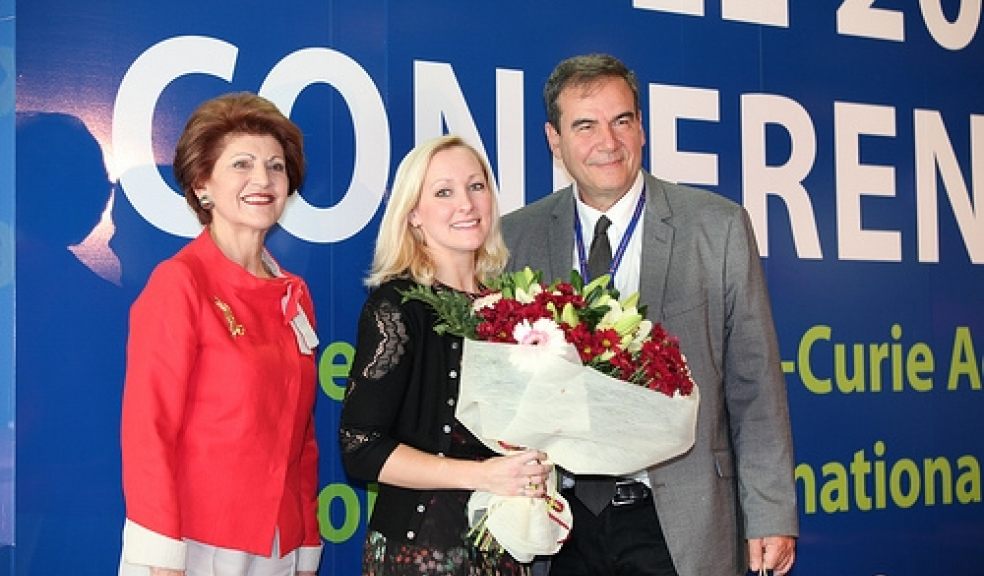
Exeter University researcher wins new Marie Curie Prize
A University of Exeter academic has been hailed as one of Europe’s best young researchers when she received an award in recognition of her work in making complex science easily accessible.
Dr Claire Belcher received the European Commission’s new Marie Curie Prize for outstanding achievement in research, for her work in science communication as a Marie Curie Research Fellow.
Dr Belcher studies the influence of forest fires in the Earth's geological past and their impact on plant and animal life. She has brought the subject to a wider audience through her website, and appearances on television and in the media.
Research has to be validated by fellow scientists, but also has to reach the wider public, according to Dr Belcher. She said: “Regardless of the value of the work, scientific research isn’t worth anything if it isn’t communicated. Science isn’t a secret – it has a real impact on people’s lives, in everything from lifesaving practices through to lipstick and hair dyes. It’s about learning and understanding our world, and inspiring a new generation of scientists.”
The scientist was one of just three winners across Europe, each successful in a different category. Dr Belcher was the only UK winner, scooping the science communication category. She was chosen because of her outreach work, which was praised as effective, innovative and creative, and secured excellent coverage in mainstream media.
Androulla Vassiliou, the European Commissioner for Education, Culture, Multilingualism and Youth, who is in charge of the Marie Curie Actions, presented Dr Belcher with a trophy at a ceremony, held at a conference in Nicosia, Cyprus on November 5. The Commissioner said: "We have created this new award to highlight the excellence and talent of Europe's best young researchers.
“I congratulate the winners who have each made their mark in their respective fields. It is vital that we continue to invest strongly in European research, which contributes to solving great societal challenges in areas such as health and the environment, and which is also important for the European economy. I hope the Marie Curie Prize will encourage other researchers and inspire more young people – especially girls – to consider a career in science.”

















